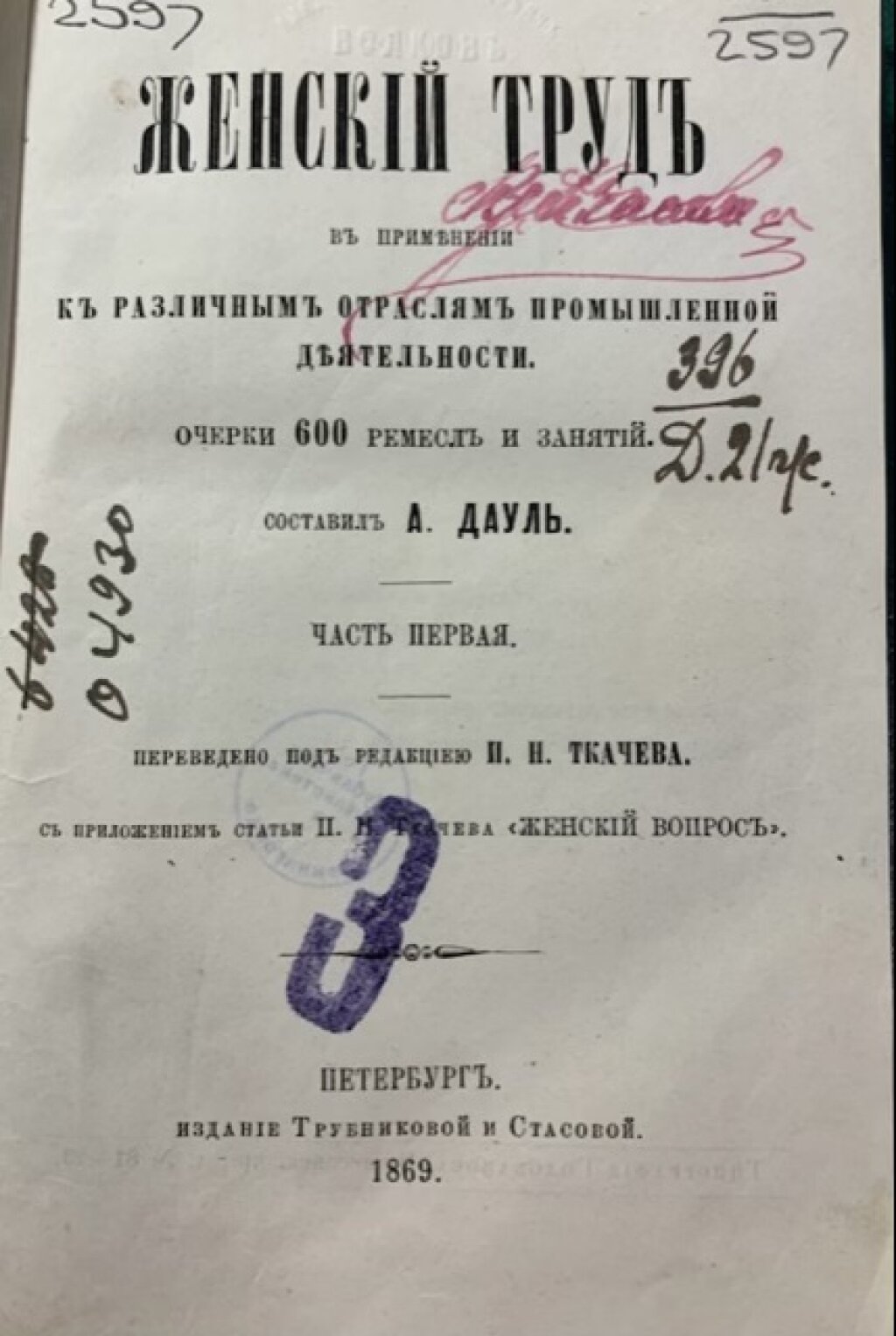Mid-nineteenth-century Russia is famous for its experiments in collective living and working. Known mainly from the fiction of Turgenev and Chernyshevsky, the idea of communal work had deep roots. In the lecture, I address an often mentioned but rarely explored example of a working union that consisted of women only, the Women’s Publishing Cooperative (WPC). Organized as an enterprise of women who sought decent jobs, it became one of Russia’s leading publishing houses. Ensconced in the field of philanthropy, the WPC set a high standard for children’s literature, openly discussed the conditions of women’s labor, and addressed female readers as professionals who needed adequate support.
The main paradox of the WPC is that most of its members worked anonymously, but identified themselves as women; they separated their individuality from their gender. A closer look at the list of WPC translators gives a picture that does not correspond to the existing view that the conflict between “aristocrats” and “nihilists” was one of the definitive characteristics of the Russian women’s movement. The WPC united women from quite disparate positions on the socio-political spectrum and was one of the first Russian examples of a horizontally organized institution. The short tag “Women’s Publishing Edition” featured on WPC book covers took women out of the private sphere and declared their public agency. By absorbing women’s individual names, the WPC granted the possibility to speak for the entire gender.
Watch the event recording on YouTube here.



